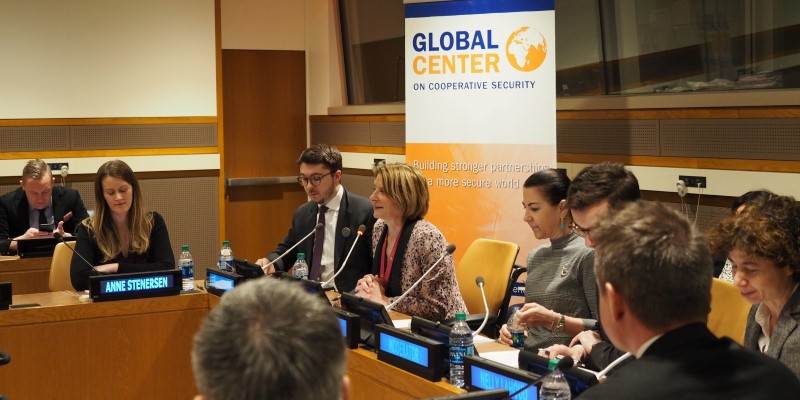Good morning ladies and gentlemen, dear colleagues, experts and friends.
It’s a great pleasure for me to welcome you to this event entitled “After the Caliphate”.
We are delighted to host this meeting together with our longstanding partners the Global Center on Cooperative Security and the Norwegian Research Establishment (FFI).
For almost twenty years, FFI has been one of the world leading centers for academic research on jihadism. Since then the network of researches has grown substantially and globally, as demonstrated by today’s distinguished panel of experts.
Allow me to extend a warm welcome to Assistant Secretary General Michèle Coninsx, Executive Director of The Counter-terrorism Committee Executive Directorate. Your contributions in this field go far beyond your work here at the UN. Thank you for your leadership.
Ladies and gentlemen,
Although substantial progress has been made in our global efforts to counter terrorism and preventing violent extremism, the threat remains widespread and complex. Their tactics have diversified and we are on the brink of a new phase in the fight against ISIL.
Moving into 2019, we are also faced with new security challenges such as the return, rehabilitation, and reintegration of foreign fighters and those associated with them – including women, boys and girls.
Moreover, we need to prepare for fewer centralized attacks and more delegated attacks by homegrown lone offenders or self-radicalized individuals, as we have seen in Europe and in my own country.
If we ever needed reliable and precise research on the threat from international terrorism – it is now. Sharing new perspectives through platforms such as this meeting, can help foster an open and frank dialogue between policy makers and researchers. That is the objective of today’s discussion.
A major focus for Norway is preventing violent extremism – in all it’s forms. Turning our attention to understanding local drivers of conflict and tackling the root causes is an investment in sustainable peace and stability.
As co-chairs of the UN Group of Friends of Preventing Violent Extremism, together with Jordan, we will continue to support the work of the Secretary General, CTED, the UN Office of Counterterrorism, and put these issues high up on the UN’s agenda.
Ladies and gentlemen, in conclusion, we need more research on terrorist trends, both regionally and globally, and on the intersections between terrorism and other global security threats.
These are dimensions we must take into account when developing our strategies. We must ensure that policies are based on facts and not assumptions, and welcome different views and perspectives. I look forward to reading the conclusions from your discussions and to continuing our partnership.
Thank you.
